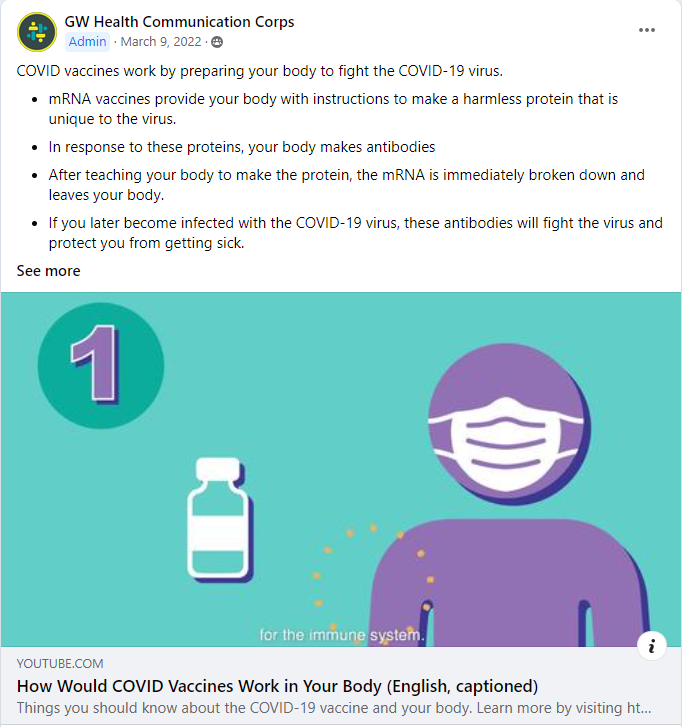WASHINGTON (July 31, 2023) – In the midst of ongoing public scrutiny of major social media platforms for their handling of COVID-19 misinformation, a study conducted by researchers at George Washington University reveals an alternative approach, showcasing how social media platforms can be effectively harnessed to foster constructive information sharing, countering the destructive spread of misinformation.
The research, led jointly by David A. Broniatowski, associate professor of Engineering Management and Systems Engineering in the School of Engineering and Applied Science, and Lorien Abroms, professor of Prevention and Community Health at the George Washington University Milken Institute School of Public Health, tested a novel approach to changing anti-vaccination attitudes via social media: sharing empathetic messages on Facebook. Using private Facebook groups, researchers found that by providing empathetic messages to correct vaccine misinformation in a way that builds respect and trust, study participants could change their intentions to get vaccinated against COVID-19.
In their study, researchers created two separate private Facebook groups and recruited people who were unvaccinated to join an assigned group for four weeks. None of the study participants were made aware of the other Facebook group’s existence. Twice a day, study moderators posted vaccination or COVID-19-related news articles to the intervention Facebook group. Intervention group participants were able to respond in the comments section to the posted news articles and moderators would respond to questions and comments raised. Replies from the moderators were designed to convey empathy for their questions and concerns, while also correcting misinformation and restating the safety and effectiveness of the COVID-19 vaccine. In the control group, moderators did not engage with the participants’ comments or questions directly and only shared a referral to Facebook’s COVID-19 vaccine information center.
Following up with 403 study participants six weeks after enrollment, researchers found differences in the attitudes and intentions between those who received empathetic encouragement compared to those given referrals. The group that received the empathic messages showed an increase in their intentions to vaccinate, as well as their attitudes on the importance of encouraging others to get vaccinated, the need for COVID-19 vaccination, and their general vaccine confidence and the responsibility to vaccinate.
“In this study, conducted two years into the pandemic when COVID-19 vaccine views were well entrenched, we demonstrated that an empathetic approach to health education can change minds about vaccinations," said Abroms.
“Our findings carry immense significance as they demonstrate that the intervention fostered a social norm supportive of vaccination," remarked Broniatowski. "This suggests that social media could serve as a powerful tool to promote vaccination offline, with respondents in our group possibly acting as ambassadors to their own communities. However, additional studies should be done to show whether social media can help increase the number of people who actually go ahead and get the protective vaccine.”
The article, “Empathic Engagement with the COVID-19 Vaccine Hesitant in Private Facebook Groups: A Randomized Trial,” was published in Health Education & Behavior on July 30, 2023. The study was supported by the Vaccine Confidence Fund.


